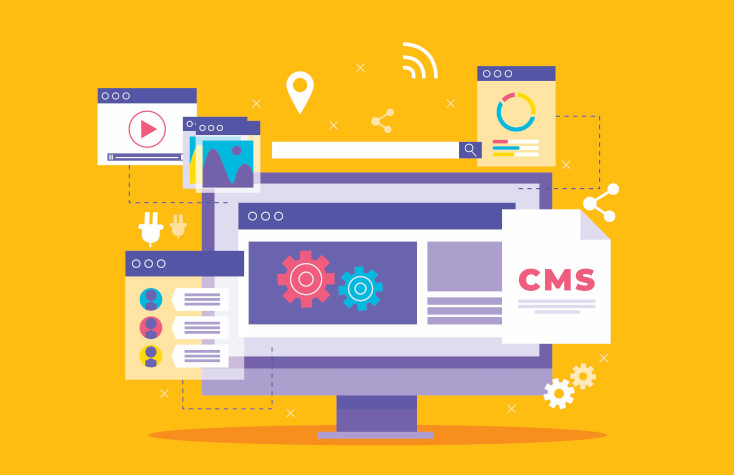7 Core Criteria for Assessing a New CMS
A new CMS Vendor Selection Guide from Digital Doughnut sister company, London Research, provides useful advice about how to choose the right platform for your business, and how to compare different vendors. This article casts the spotlight on key criteria you should be assessing when comparing vendors.

Read on for information about seven of the 17 core capabilities highlighted in our new buyer’s guide produced in partnership with Progress Sitefinity.
End-User Experience
The quality of the consumer experience offered by a brand has become a crucial point of differentiation. Brands need to be able to deliver the right content to the right person at the right time via the right channel.
That requires a 360-degree view of that person and all the brand’s previous interactions with them. Brands also need to deliver their content seamlessly across all channels so they avoid customers losing trust in the experience.
If your CMS can’t handle these fundamental requirements, nothing else on this list matters.
Back-End UI
An intuitive user interface is probably the second most important selection criterion for any business choosing a content management system, given the amount of time that can be wasted – and frustration caused – by platforms that are not user-friendly.
Heavy internal users of the CMS should be consulted on the attributes they would like to see in a new platform, but obvious ones include low or no-code functionality and straightforward image editing and uploading.
Personalisation
The ability to serve personalised and relevant content is becoming increasingly important to companies, as consumers become less tolerant of a blanket approach that doesn’t take their own specific interests and behaviour into account.
A modern CMS must allow personalisation through the creation of user personas and the ability to segment users based on a plethora of data sources, ranging from purchase history and CRM data to referral and search keyword information
Support, Training and Partner Ecosystem
Support and training are essential if you want your chosen CMS platform to run as efficiently as possible. It is also important to know there is someone you can call at short notice when things haven’t quite gone to plan.
Make sure there are agencies and delivery partners with the technical knowledge around your chosen CMS and its underpinning technology (e.g. .NET) to help deliver what you require, including any customisation. The more bespoke your platform, the more likely you are to need support, either directly from the vendor or from your agency partner, if you are working with one.
Internationalisation
Whether you are a global organisation or a small business with aspirations for more cross-border business, the ability of your CMS to function across different markets and languages could be critical.
You may have different website set-ups in different countries or a single corporate site in different languages. Multi-site and multi-language support, translation management and time zone functionality are all important features that need to be considered.
Security and Compliance
Your CMS needs to do two things. It has to protect both your data and your wider software infrastructure from malicious intervention, and it has to make it simple for you to comply with legal requirements around data storage and use, for example GDPR and CCPA.
This is another area where the involvement of your CIO or CTO is critical to the decision-making process.
Vendor Roadmap
Make sure that your chosen vendor has a roadmap that matches the demands of your business strategy and recognises developing technologies such as machine learning, which is already being harnessed for marketing optimisation and content creation.
You also need to be certain that they are able to respond quickly to changes in consumer behaviour.
Download the CMS Vendor Selection Guide to learn about all 17 key criteria, and to see our scoring card for assessing different vendors.